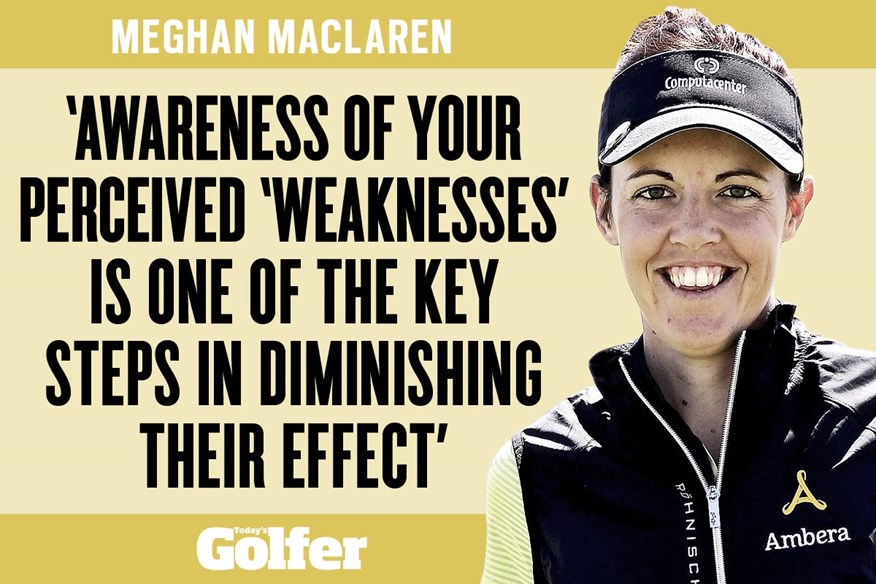Meghan MacLaren: “What you can learn from pro golfers’ mentalities”
Last updated:
Ladies European Tour star Meghan MacLaren explains what we can learn from professional golfers’ mentalities and how knowing our weaknesses can help limit their impact.
How many times have you heard someone say, after a great round or a tournament victory, that they didn’t look at a leaderboard once? Do you believe them? If I’m being honest, I’ve always found it incredibly hard to believe because at 95 percent of top-tier professional tournaments, there are leaderboards everywhere! Even in these Covid times, when there’s a lot less infrastructure in place, it’s pretty difficult to avoid seeing the scores somewhere.
RELATED: Best Ladies’ Golf Drivers
The mindset that surrounds that debate among golfers has always intrigued me. The question, on the surface, is whether you want to know where you stand in a golf tournament, particularly if you are in or around the lead. But it’s more subtle and more complex than that. The real question is actually: Will knowing where you stand affect how you are playing?
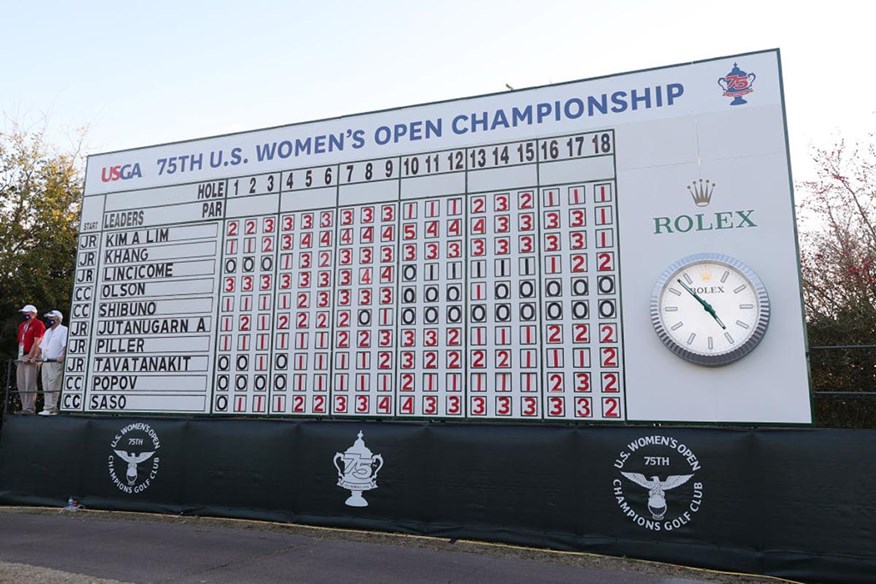
Golf’s biggest attraction, for me at least, is the intertwining of the psychological and the technical. You can have all the technical skills in the world, but the way you think on the golf course can do absolutely anything to those technical skills; both good and bad.
It’s interesting that some of the world’s best players will readily admit consciously avoiding leaderboards when we would assume that they are (for the most part) as mentally competent as they are technically.
RELATED: Best Ladies’ Golf Balls
I have long thought that being aware of your perceived ‘weaknesses’ is one of the most important steps in diminishing their effect. Leaderboard watching is a case in point. If you think you might be affected – even by one percent – you can make a decision before you start. Being strong enough to stick to that decision may well be what separates players.
In the ANA Inspiration, the rookie Patty Tavatanakit went wire-to-wire to win in dominant fashion.
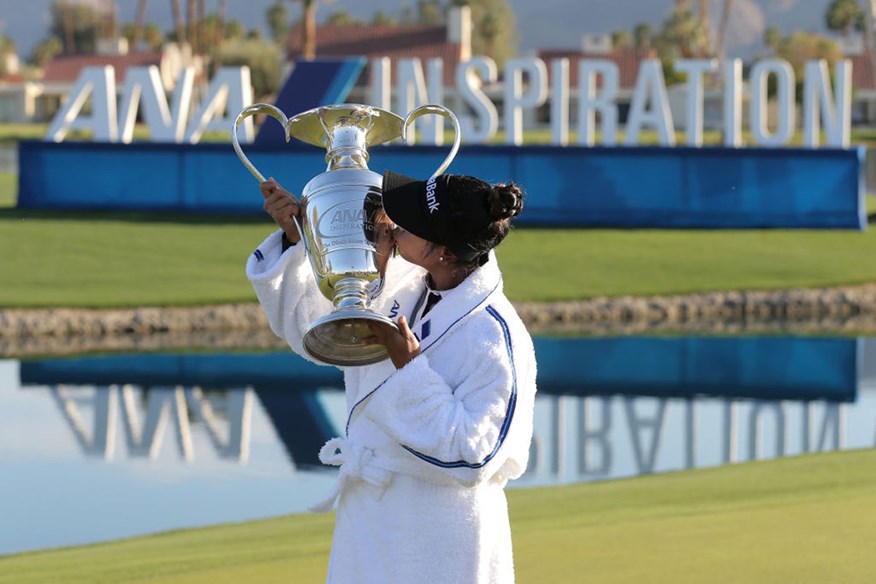
In Sunday’s final round, former World No.1 Lydia Ko teed off a few groups ahead of the leader. Ko went out in seven-under 29, getting it to nine-under through 11, and eventually shooting 62.
So, despite Tavatanakit being five shots ahead to start the day, she was in a worse position than when she started, thanks to Ko! When Tavatanakit was asked about Ko’s round, she said she’d had no idea because she hadn’t been looking at the leaderboards.
RELATED: Why women’s golf will continue to grow
This is the perfect example of why not looking at leaderboards can work. Knowing Ko’s score could have caused Tavatanakit to feel like she needed to be more aggressive, or worry that she might be caught, or think any number of things that could have negatively affected her. Instead, she did exactly what she’d been doing since Thursday – playing near flawless golf, completely in her own zone.
On the flip side is a personal example of my own. I played in the Dubai Moonlight Classic on the LET late last year. I was in a great place with my golf and felt as good as I ever have mentally – it was a very strong field and I relished the chance to show what I could do. It was one of those rare occasions where the balance between confidence and calm was right in the sweetspot. I played in the final group in the last round, starting two shots and one place behind the leader.
RELATED: Best Ladies’ Fairway Woods
The LET introduced a temporary rule when play restarted in 2020, stating that players were allowed to use their phones to check the scores, because of the lack of on-course leaderboards. Before that final round in Dubai, I’d sort-of decided that I wasn’t going to check the scores while I was playing – because I wanted to keep the focus entirely on myself.
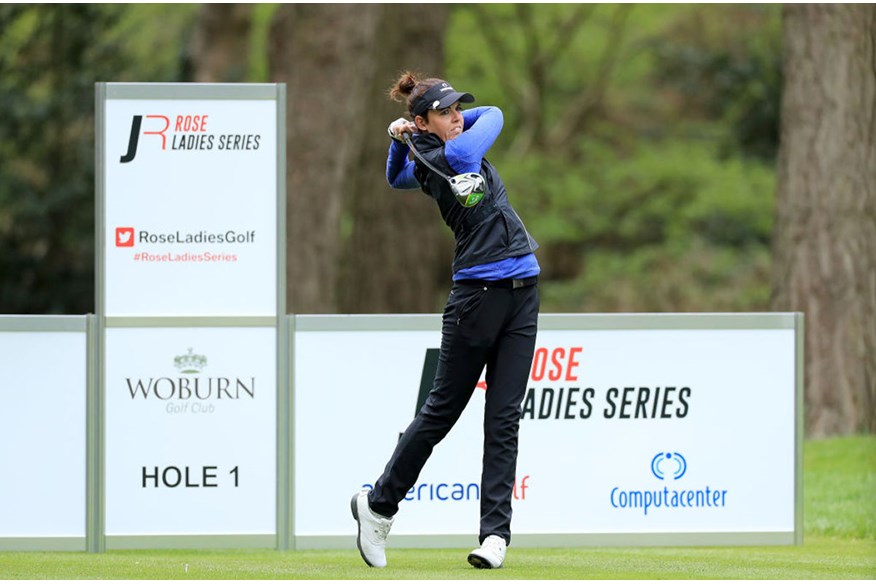
However, I use the words ‘sort-of’ for a reason! Despite – or because of – my calm, confident state of mind that week, I allowed myself to change my mind on the course.
I started the round well and was vaguely aware that I’d overtaken my playing partners. But I’ve been in that situation before in a last round and it made me more defensive, not knowing that someone in a group ahead was quickly gaining ground. Checking the scores in Dubai made me aware of what else was happening and the most crucial part was that I trusted myself to take that information in without reacting negatively.
RELATED: Best Ladies’ Golf Irons
At the end of the day, like so many things in golf, it may well be down to personal preference. It also comes down to how well you know yourself. But if you haven’t noticed it before, try to pay attention to the post-round interviews with tournament leaders. It may provide you with a little insight into where their mind is – that is, of course, if they’re telling the truth!
READ MORE FROM MEGHAN MACLAREN
“How to make the most of your golf IQ”
“Try to play golf without fear”
-
 LET star Meghan MacLaren explains why knowing our weaknesses helps us to limit their impact.
LET star Meghan MacLaren explains why knowing our weaknesses helps us to limit their impact.
-
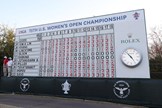 The leaderboard at the US Women's Open Championship in 2020.
The leaderboard at the US Women's Open Championship in 2020.
-
 Golfer Patty Tavatanakit went wire-to-wire at the ANA Inspiration.
Golfer Patty Tavatanakit went wire-to-wire at the ANA Inspiration.
-
 LET star Meghan MacLaren in action at the Rose Ladies Series, where she won't be checking the leaderboard.
LET star Meghan MacLaren in action at the Rose Ladies Series, where she won't be checking the leaderboard.
